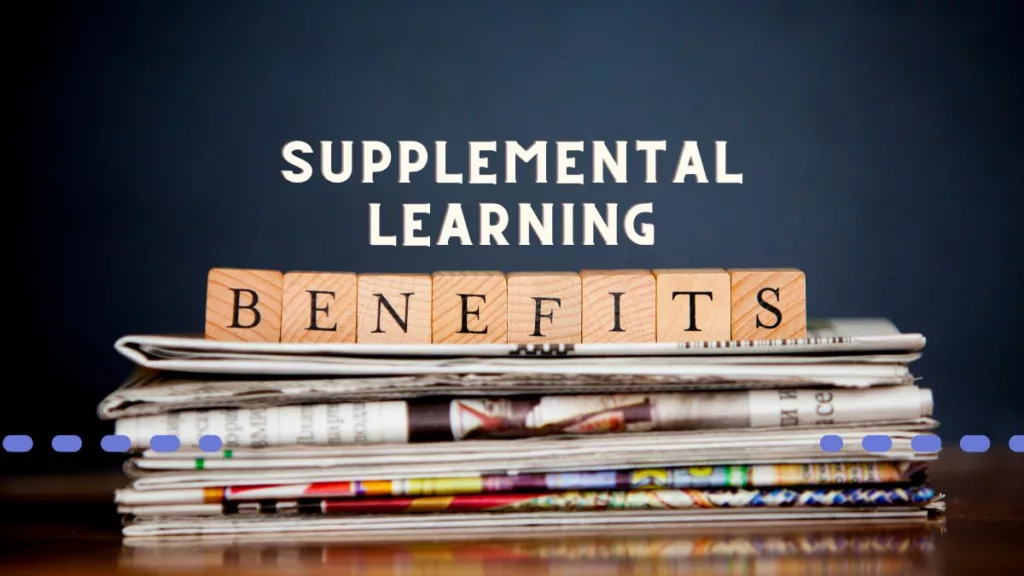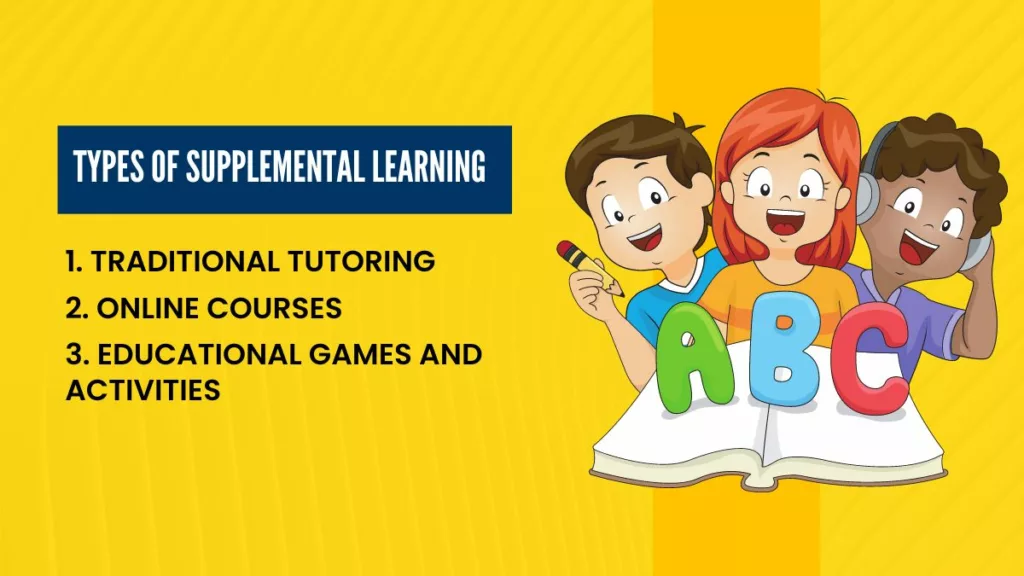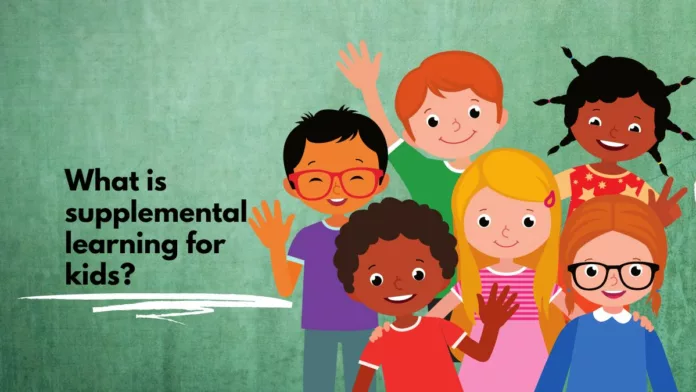Supplemental learning is an educational approach that can help children develop important skills and knowledge outside of the traditional classroom setting. It can be used in combination with traditional instruction or as a stand-alone approach to help children reach their learning goals. Supplemental learning is not just for the gifted or advanced children. It is also beneficial for kids of all ages and abilities.
Supplemental learning can involve a variety of activities, including online courses, tutoring, and educational games. It can be tailored to the individual needs of each child and can involve activities that are both fun and educational. In this article, we will explore what supplemental learning is, the benefits of supplemental learning, and the various types of supplemental learning available. We will also discuss how to get started with supplemental learning and tips to help children stay focused and engaged with their supplemental learning activities.
Table of Contents
Benefits of Supplemental Learning
Supplemental learning can offer many benefits for children of all ages and abilities. It can help children develop skills that are not taught in the traditional classroom, such as problem-solving, critical thinking, and communication. Supplemental learning can also help children develop an understanding of the world around them and how it works, giving them the confidence to explore and discover on their own.

Supplemental learning can also be beneficial for children who may be struggling with their regular school curriculum. It can provide an alternative approach to learning that may help them better understand the material and gain a better understanding of their own learning styles.
Finally, supplemental learning can help children develop a sense of independence and confidence in their own abilities. It can help them develop the skills necessary to become successful and confident learners.
Types of Supplemental Learning Activities
There are many types of supplemental learning activities available for children. These activities can range from traditional tutoring and online courses, to educational games and activities.

Traditional tutoring is a great way for children to get additional help with their studies. Tutors can provide personalized instruction and guidance to help children understand the material, develop better study habits, and improve their overall academic performance.
Online courses provide an interactive learning experience and can be a great way for children to expand their knowledge and explore new topics. Many online courses are tailored to the individual needs of each child, so they can learn at their own pace.
Educational games and activities can be a great way to keep children engaged and excited about learning. Games and activities can help children develop skills such as problem-solving, critical thinking, and communication. Many educational games and activities are designed to be fun and engaging, so children are more likely to stay motivated and focused.
Extra Supplemental Learning Activities for Kids
There are numerous extra educational activities that parents could engage in with their children to aid them in their success at school. A few of the extra learning activities are:
| Learning Art | It’s a fun method of expressing your thoughts and using the help of digital art tools to make your ideas come to life. Children love to watch their thoughts and emotions become an artwork, and it’s a fantastic opportunity to teach them about their own creative abilities. |
| Learn Coding | Coding is an excellent activity for children who wish to learn more. It helps them comprehend the way machines function and also how they can be controlled. Programming for children is an essential skill for the future; therefore it’s essential for children to master it right now. |
| Learn Robotics | The robotics field for children is an excellent opportunity to learn more about the way machines function. By using robotics, kids are able to build their own robots, and then watch them come into life. This is a fantastic mix of STEM & coding, which will improve child math and science knowledge. |
| Educational Games That You Can Play | There are many educational games that are available on online platforms that help kids learn important skills. |
How to get Started with Supplemental Learning
The first step in getting started with supplemental learning is to identify the child’s learning needs and goals. It is important to understand the child’s strengths and weaknesses so that the appropriate supplemental learning activities can be chosen. It is also important to consider the child’s interests and preferences to ensure that the activities are engaging and enjoyable.
Once the child’s needs and goals have been identified, it is time to choose the appropriate supplemental learning activities. It is important to find activities that will challenge the child and help them gain the skills and knowledge they need. It is also important to find activities that are enjoyable and engaging to keep the child motivated and focused.
The next step is to create a schedule for the supplemental learning activities. This will help ensure that the child is able to fit the activities into their daily routine and will help them stay focused and on track.
The final step is to provide the necessary resources and support for the supplemental learning activities. This includes providing the materials and supplies needed for the activities, as well as providing guidance and support when needed.
Tips for Helping Children Stay Focused on Supplemental Learning
Keeping children focused on supplemental learning activities can be a challenge, but there are a few tips that can help.
The first tip is to make sure the activities are engaging and enjoyable. It is important to find activities that the child will find interesting and enjoyable, as this will help keep them motivated and focused.
The second tip is to create a schedule for the activities. This will help ensure that the child is able to fit the activities into their daily routine and will help them stay focused and on track.
The third tip is to provide rewards and incentives for completing the activities. This could include rewards such as a special treat or extra free time.
The fourth tip is to provide guidance and support when needed. This could include helping the child understand the material or providing additional practice opportunities.
The fifth tip is to give the child breaks as needed. It is important to allow the child to take breaks and let them have some free time throughout the day.
Conclusion
In conclusion, supplemental learning can be a great way for children to gain important skills and knowledge outside of the traditional classroom setting. It can be tailored to the individual needs of each child and can involve activities that are both fun and educational. It is important to identify the child’s needs and goals, find activities that are appropriate for the child’s age and ability level, and provide rewards and incentives for completing the activities. It is also important to provide the necessary resources and support for the activities, as well as guidance and support when needed. With these tips and best practices, supplemental learning can be a great way for children to gain the skills and knowledge they need to succeed.

